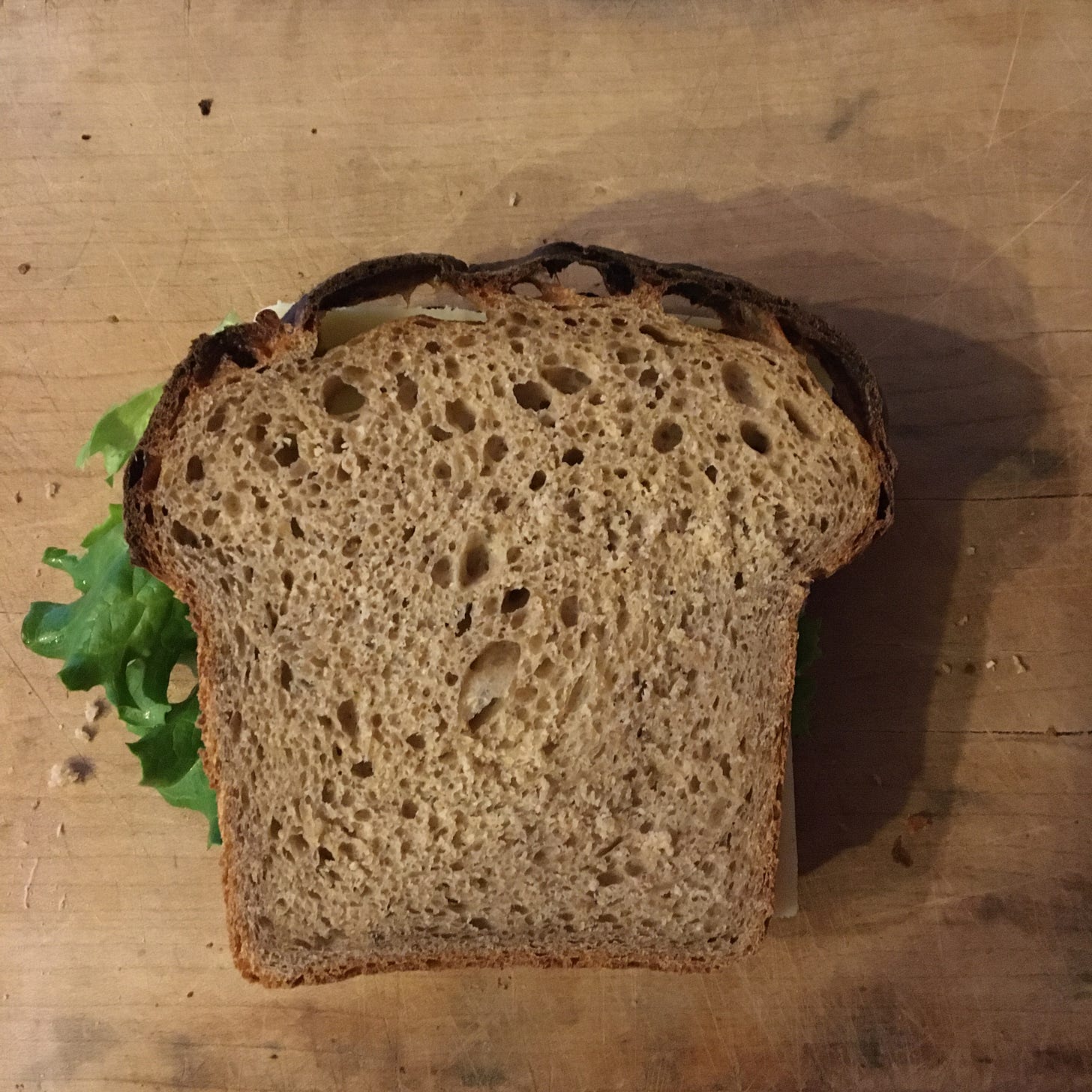Bread Words
How we think about our daily
Dear Bread,
What if I could write on a slice of you? Or scratch a novel onto your crust? What would I learn? (Because writing is learning.) What would I say?
Of course, bread speaks worlds without words, of flavor, ovens, ingredients, time, history and circumstance. We are always reading food for clues to status, health, and the rightness of our choices, same as any object or option. Glasses, haircut, car, clothes, bread. We register each other through codes, even and especially codes for bread.

Food historian William Rubel traces this coding very clearly. I’ve been attending some of his bread history seminars, and Thursday’s was about words – how we can learn bread history and culture through the terms that are used for baking and bread.
For instance, the term artisan bread may seem to harken back to some desired historic times of village baking, but it first appeared in the 1990s. Sour bread is attributed to Sylvester Graham, who thought it a common evil that interrupted digestion.
I had to look up Sad Bread because my notes were too thin, and I found the definition pictured below in the Dictionary of Phrase and Fable by Ebenezer Cobham Brewer. This is the 1895 version of what I know as Brewer’s Phrase and Fable, which I use when I want to know the meaning of common phrases, or literary ones. My version is from 1970, and doesn’t contain the gem below – so I’ll be returning to that digitized copy of the original book, and probably trying to find a reprint.

These and other terms mentioned in William’s talk assert that over time, whole grain bread is not the norm except for the poor, and that white bread long ago became the bread that is considered bread.
I recommend you find a copy of his book, Bread: A Global History. This slim book is a deep explanation of how we arrived here, to the land of the loaf.
There’s one more seminar this season, on May 26th. The talk is free, and you can register for “Flatbreads! Of Choice or Poverty” here. The discussion and recipes will help frame a broader understanding of bread expectations — that’s what generally happens in them.
Each seminar begins with William stating that bread is an invention. Here’s a similar assertion from the introduction to Bread: A Global History.
“Bread is a concept. Bread is not harvested by farmers, it is manufactured by bakers. As an invention of culture the concept of bread can change. However, in practice, while concepts of what makes a good bread do change with time, the core European concept of what bread is has been remarkably stable for thousands of years.” — William Rubel
Why do we think bread is static? That there are traditions we need to cling to or the sky will fall? Even in my lifetime, the possibilities of bread have stretched incredibly. Yet each time I type or think the word bread, I automatically see a loaf. I'm so trained by experience. William’s work has helped me see this. I really appreciate him.
What books and talks are helping open your mind?
Amy
Resources:
William Rubel’s YouTube channel has some of his bread history seminars archived.
Patricia Bixler Reber’s Researching Food History blog contains incredible resources, including a calendar of virtual talks.


Thanks bunches for the inspiration! Since you included William Rubel's YouTube link, I watched the first one and was utterly entertained! Yes, bread is an invention, and I am inventing my own version of it every time I bake. I hate following rules. I look at recipes as incentives that make me want to see where the adventure takes me. I don't "do" instant yeast anymore but stick with Sir Bobby Farts-Alot (my sourdough starter) and add him to any recipe that inspires me. I have added beer wort to focaccia before. I watched The Sourdough Librarian on YouTube when he took a trip to Mexico to learn about Birote Bread and loosely followed what they did on a large scale to my "gnome-sized" breads. It was a fun quest. https://www.instagram.com/p/CJ4gB6Jp4pF/